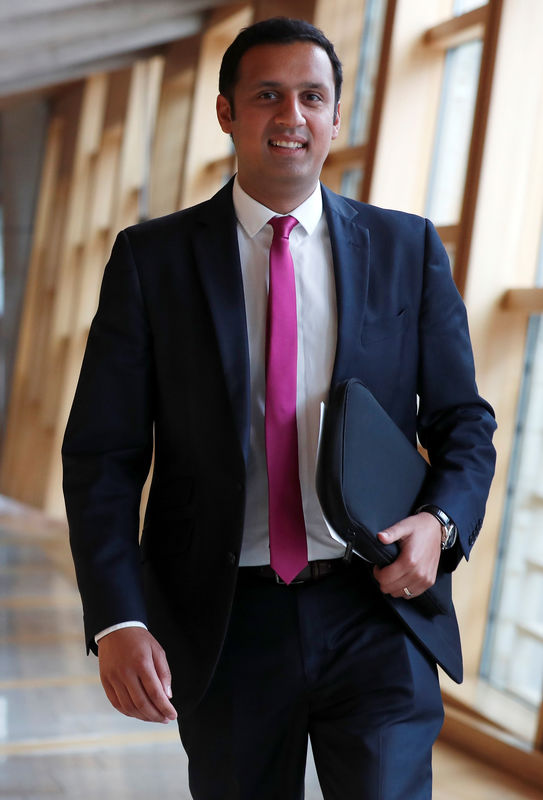EDINBURGH (Reuters) - Scotland's First Minister Nicola Sturgeon announced a series of eye-catching measures to boost the economy on Tuesday, including the creation of a national investment bank and green energy schemes like a phasing out of new petrol and diesel cars from 2032.
Sturgeon's nationalists lost seats in June's British parliamentary election when an attempt to push for a new vote on independence vote backfired.
She now hopes to burnish her credentials by focusing on the bread-and-butter of an economy which has been underperforming that of the United Kingdom as a whole.
Sturgeon confirmed her devolved government will remove a public sector pay cap which is still in force in the rest of the UK.
Despite Scotland's yawning public deficit, she stopped short of announcing tax increases, saying only that a wide-ranging debate would be started on how Scotland's taxation should be managed to ensure "responsible and progressive" use of new tax powers. Scotland sets a portion of its own tax bands and rates.
"This program is about equipping Scotland - not just for the next year - but for the next decade and beyond," she told the devolved parliament, saying that some measures would be controversial.
"No one has ever built a better country by always taking the easy option," she added.
New petrol and diesel cars will be phased out by 2032, eight years earlier than under proposals set out by the London government, she said.
The government will also introduce a deposit return scheme for bottles and cans aimed at keeping streets cleaner and saving local authorities some cash.
The new investment bank will be aimed at supporting the capital investment needs of the economy and helping to foster economic growth.
The main opposition party, the Scottish Conservatives, accused Sturgeon of hyperbole.
"Overpromise and underdeliver is a theme with this government," said leader Ruth Davidson.
Sturgeon would also look at how Scotland's parliament can protect its powers following Britain's exit from the European Union. She announced this summer that Scotland, which voted to keep EU membership, could not support Brexit in its current form.
"We will continue to seek the agreement of the UK government to amendments that will address our (Brexit) concerns," she said.
"However, in case that proves impossible, we are also considering the option of legislation in this parliament to secure the necessary continuity of laws in Scotland."
